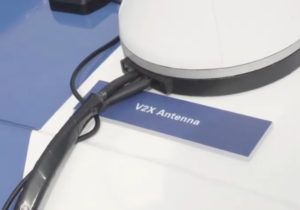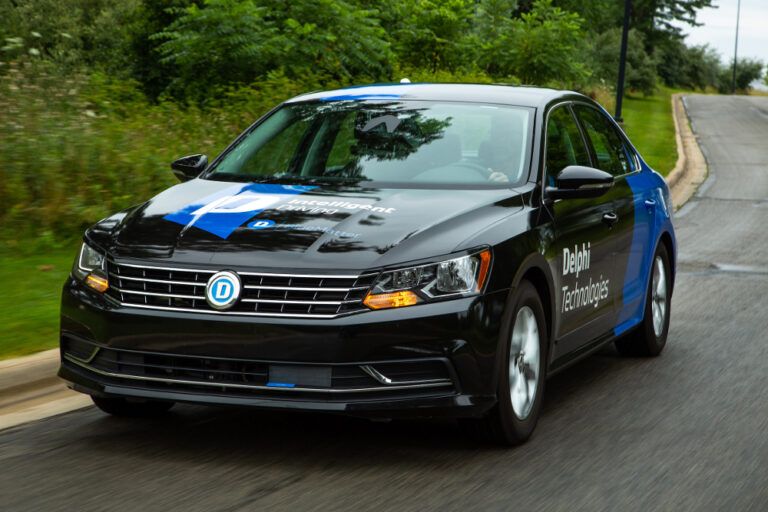Global propulsion technology provider Delphi Technologies is pairing vehicle electrification advances with existing and emerging connected and automated vehicle (CAV) systems to boost fuel economy, lower emissions, and extend driving range.
Delphi says the initial testing of what it calls ‘Intelligent Driving’ has demonstrated a greater than 10% carbon dioxide (CO2) reduction (compared to regular driving modes) when tested on a mild-hybrid vehicle in real-world driving conditions. When applied to hybrid electric vehicles (HEVs), Intelligent Driving technology has the potential to improve efficiency even further as new driver assistance technologies emerge, across all propulsion systems, including internal combustion (IC), hybrid or full electric. The Intelligent Driving technology uses predictive propulsion software and systems to take real-time data from existing advanced driver assistance systems (ADAS) and new CAV systems to improve fuel efficiency and range without expensive hardware or engine redesigns.
The Intelligent Driving system collects data on speed, location, topography, traffic light patterns, congestion, and more. This data is then funneled from the cloud into a propulsion controller that actively adjusts vehicle speed, energy balance and performance to help the vehicle make smarter, energy-saving decisions. Taking the technology a step further, Delphi has been collaborating since the beginning of the year with navigation and traffic information services provider TomTom to collect and use the company’s data in its tests of the system’s cloud-based navigation and mapping capabilities. This is to help select the most energy-efficient routes, such as avoiding high traffic congestion areas or construction zones.
Delphi says Intelligent Driving will continue to evolve as more data becomes available and as active safety and connected vehicle systems become increasingly sophisticated. In urban driving, for example, vehicle-to-infrastructure (V2I) or vehicle-to-vehicle (V2V)data can alert the system to traffic signal timing, an approaching emergency vehicle or other alerts that indicate a change in traffic patterns or road infrastructure. Delphi is currently discussing possible co-development projects on its Intelligent Driving system with several OEMs, with production possible in the 2021-2022 time-frame.
“Our Intelligent Driving system works much like today’s cruise control; essentially something you can turn ‘on’ and ‘off’,” said Harry Husted, vice president of engineering, electronics and electrification at Delphi Technologies. “With this approach, the system can be used with varying levels of driver assistance and automation, including those in operation today.”
To watch a video about the technology, go to: https://youtu.be/IeETraZ2Ul4






